Making room for Bangla in our public schools
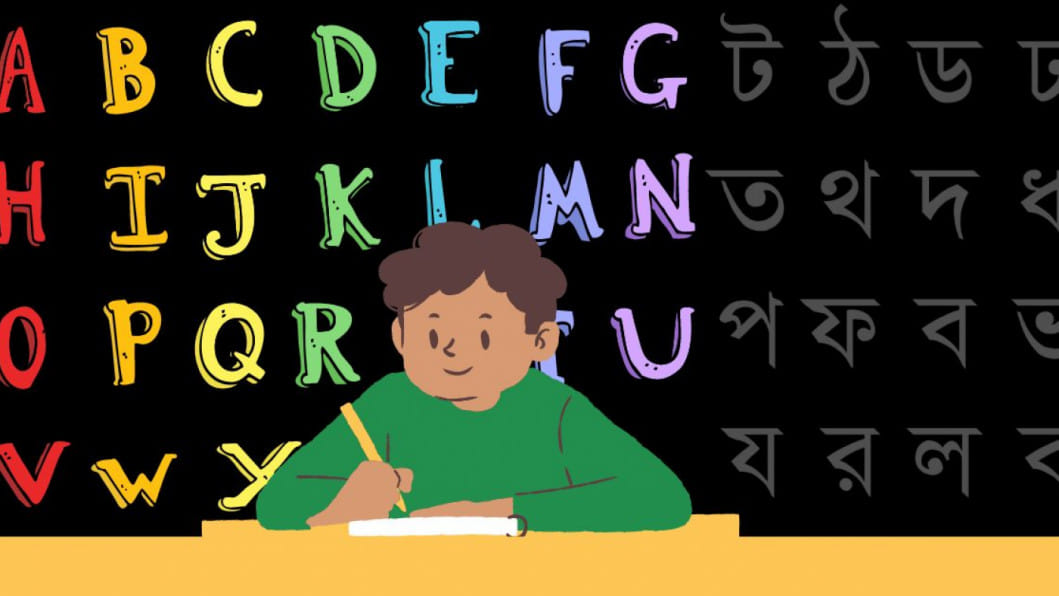
Though language helps us get to the root of finding meaning in our existence, we have long neglected learning Bangla properly in Bangladesh's education system. The rapid decline in the quality of education in the country after Liberation led to a rise in people moving towards a separate system of private education with English as the medium of instruction. Later, even the government joined the bandwagon by launching an English version of the national curriculum. But research has shown that the use of a language different from one's mother tongue at the primary level acts as a barrier for a child's cognitive development and their enjoyment of learning. Unesco has found the use of one's mother tongue as being crucial for avoiding knowledge gaps and for increasing the speed of learning and comprehension in children.
Education which does not accommodate one's mother tongue in the early years can be unproductive, ineffective, and can have a negative impact on children's overall education. The new initiative of the government for reforming the education system has not addressed the urgent need of the country for having an effective medium of instruction. In actuality, it has exacerbated the problem by putting more emphasis on improving students' English skills at the primary level. This will act as a hindrance to the intellectual development of children in the public education system. It is also widely recognised that a child can pick up a new language quite well if it is introduced to them during primary school. In fact, mastery over one's mother tongue helps to learn a new language rapidly and more effectively.
Teaching Bangla has historically not been given adequate importance in the Bangladeshi school system and, consequently, there is an acute lack of ability amongst the youth in expressing and writing in Bangla. Students entering high school thus do not have good command over Bangla, often lacking reading and pronunciation skills. As such, they also struggle to properly comprehend the study materials of different subjects from Class 6 onwards. The situation is made worse by the widespread absence of a habit of reading books outside the school's curriculum. Besides, many underprivileged high schools, particularly in rural areas, lack any library facilities. The abysmal condition of Bangla writing on social media platforms exemplifies the enormity of this problem perfectly.
Increasingly, there has been less and less literature of high quality in the Bangla curriculum. The new curriculum for Bangla in Classes 6 and 7 did put emphasis on learning Bangla through a functional approach, but it lacks strength in terms of its Bangla literature syllabus. Literature invokes thought, develops creative thinking, and often requires careful reading so that students can properly comprehend the author or poet's meaning.
In addition to the creative and developmental roles of language studies, there is a practical need for every educated person to be well-versed in their own language. Bangla is now the medium of instruction in the public education system at all levels, though English is more required for acquiring advanced degrees in different disciplines. There are not enough materials available in Bangla at those levels.
In order to overcome the shortcomings related to Bangla in our public education system, at least up to Class 10, there are some specific steps that can be taken. Students should be taught Bangla from Class 1 to Class 5, with emphasis on all aspects of the language – vocabulary, pronunciation, spelling, speaking, listening, reading, and writing. The textbooks should be designed using materials that young learners can absorb with enjoyment and enthusiasm.
Bangla learning in Classes 6 to 10 should involve teaching essays, stories, and poems of increasing difficulty. The content in the curriculum should include Bangla translations of pieces of literature from other languages as well. This will help open up the imagination of students, giving them a glimpse of the world outside.
In order to teach Bangla, teachers must have a good grasp on language teaching. The success of the curriculum demands immediate training on the right pedagogy to suit the new curriculum. An innovative and compact method of training that empowers teachers to conduct classes in an effective manner has to be designed.
While augmenting the teaching of Bangla up to Class 10, the government should undertake a mega-project inviting authors to produce Bangla versions of advanced level books from different disciplines which are in other languages (particularly in English), or write their own books in Bangla.
The changes in the curriculum should play a positive role in developing students' skills in Bangla. However, adequate training for teachers has been missing. The crucial role played by Bangla in the intellectual development of children must therefore be duly recognised.
Dr Jasimuz Zaman and Matilal Pal are co-authors of 'Quality Education for Rural Bangladesh,' a book based on their work with rural high schools over the last decade.

 For all latest news, follow The Daily Star's Google News channel.
For all latest news, follow The Daily Star's Google News channel. 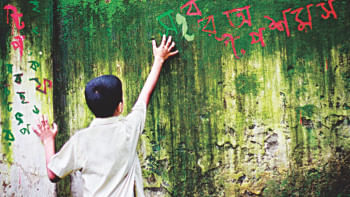
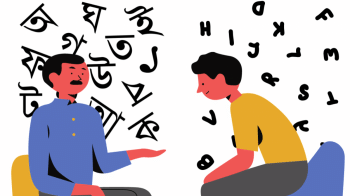




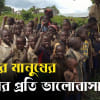

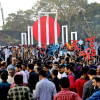


Comments